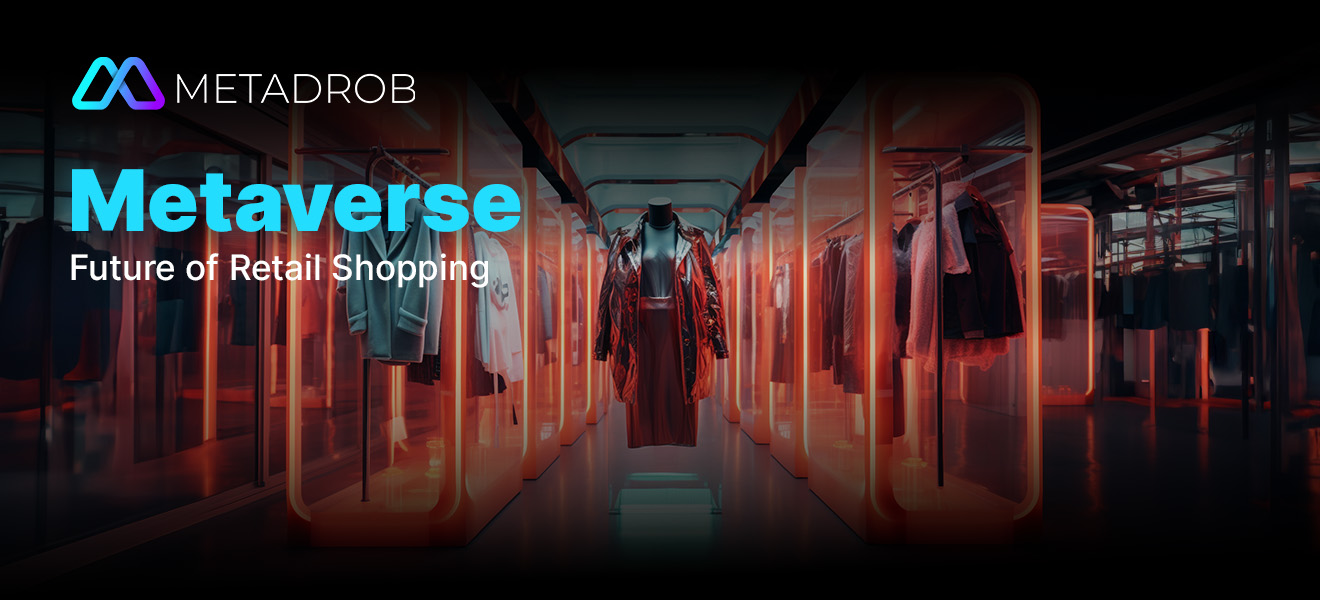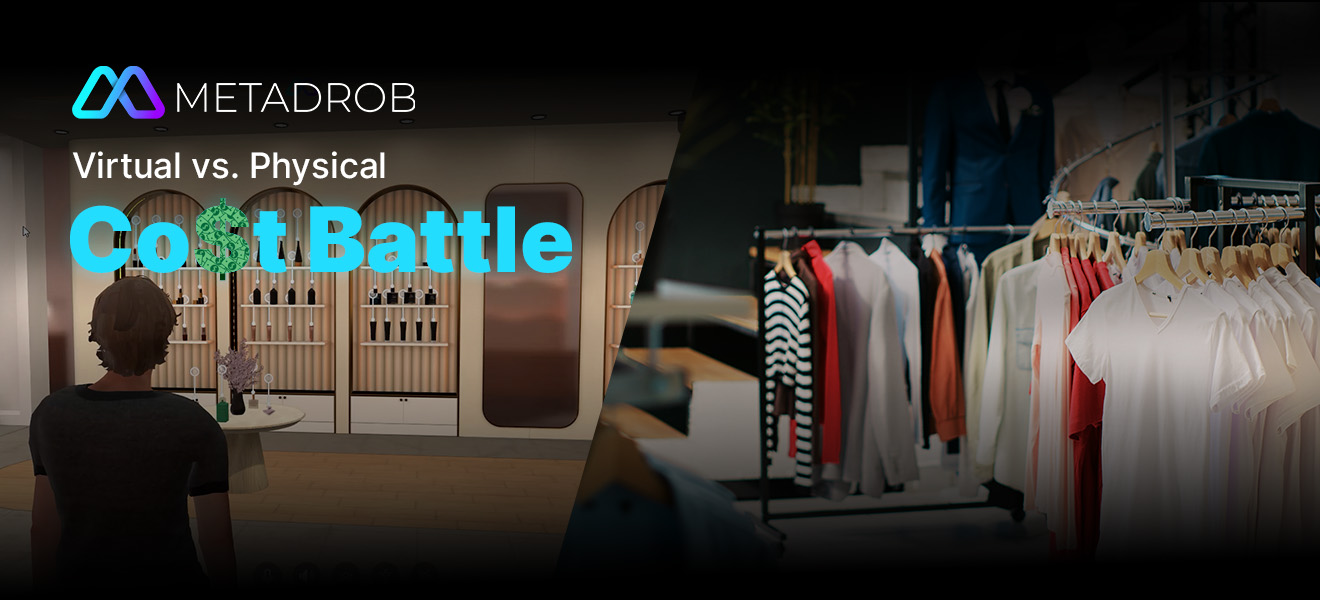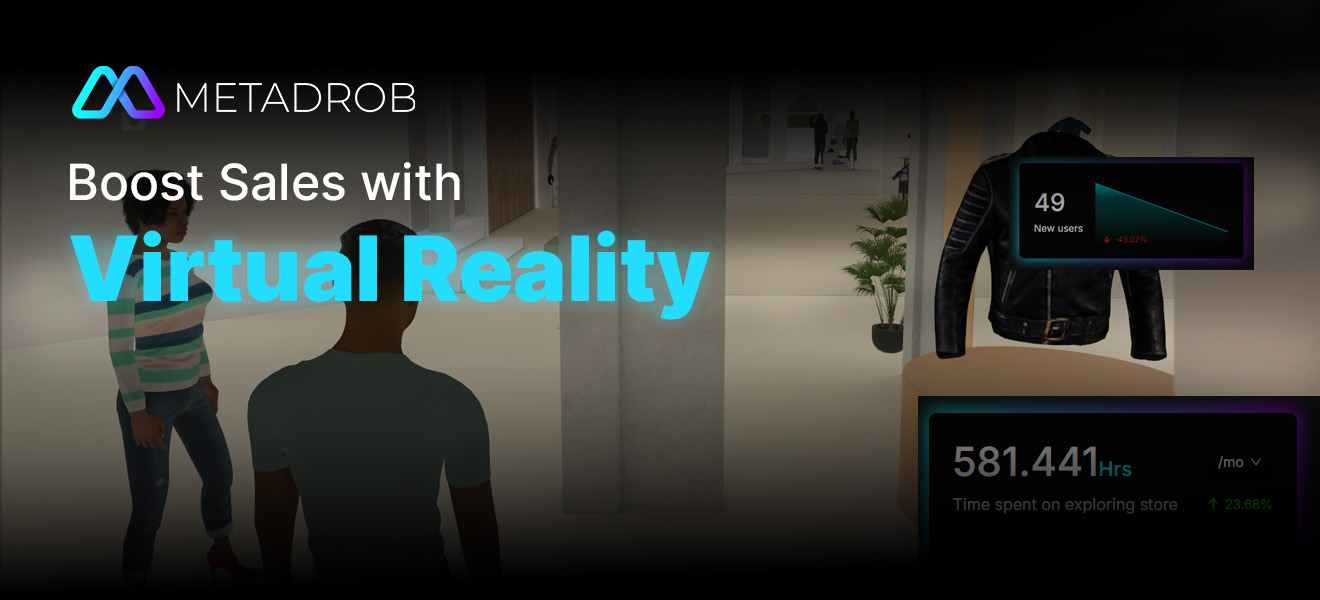What Consumers Expect from a Virtual Shopping Experience in 2024?

Virtual store technology has become an excellent promotional tool with tremendous potential in today’s digitally driven society. Businesses can express their story distinctively and cost-effectively with these immersive experiences.
Online virtual stores generate a captivating and engaging experience that can greatly impact customer conversions and engagement by enabling visitors to explore and engage with a virtual environment. Virtual reality is transforming a wide range of businesses, from tourism to real estate. Almost every other industry leverages this technology for a realistic, immersive, and self-paced method of showcasing goods, services, or venues.
This blog explores the different industries that use virtual store technology as a creative way to adjust to shifting consumer behaviors and market conditions.
Tourism
Virtual store technology has transformed many businesses, including travel and tourism. Immersion virtual reality tours are a great fit for travelers who value adventure and are prepared to spend money on unique experiences.
Virtual reality tours can visually thrill and inspire shoppers by enabling them to “try before they buy,” turning the booking process into a lifetime memory. Travelers may now dynamically explore sites by panning 360 degrees and fully immersing themselves in the sights and sounds instead of relying on static photographs and descriptions.
Studies have proven that virtual tours dramatically boost booking rates and encourage more expenditure. Indeed, the presence of a virtual tour increases the likelihood of a booking by 130%, and users of a web application with virtual tours spend five to ten times more money than those without. Guided tours of well-known sites, eateries, and lodging facilities give prospective travelers an idea of what to expect.
This first-hand experience can greatly increase the possibility of making travel plans. For instance, a virtual reality tour of Hamilton Island, Australia, may let viewers experience scuba diving, visit the Great Barrier Reef, and even look at the hotel’s amenities and water sports.
Real Estate
The technology of virtual stores has revolutionized many industries, including real estate. The capacity to present homes in a remarkably realistic fashion is one of the biggest advantages of this technology for real estate agents.
VR allows purchasers to experience a three-dimensional (3D) home tour with precise measurements and spatial awareness. This immersive experience does not require physical viewings, especially for purchasers who live far away or during restricted times.
Real estate agents can greatly increase their reach and draw in a larger clientele by offering prospective purchasers a thorough virtual tour. This helps brokers and buyers by enabling them to make decisions based on information not limited by time or place.
Retail
The advent of virtual store technologies is causing a seismic upheaval in the retail sector. Online shopping will get much more interactive and interesting as the metaverse approaches.
Consider virtually trying on clothing with an accurate fit and feel. VR retail experiences promise to deliver on this. With body-scanning technology, consumers will be able to preview how clothing will fit them before placing an order, which will lower the possibility of returns and lessen the negative environmental effects of fast fashion.
Several well-known companies have already begun testing this technology. For example, Trillenium is a software development firm specializing in VR retail solutions, and ASOS is one of its investors. Fashion brands that showcased their virtual collections to a global audience during Metaverse Fashion Week included Tommy Hilfiger and DKNY.
High-end brands like Gucci and Ralph Lauren have advanced the situation by developing custom online storefronts. A genuinely unique approach to exploring collections is made possible for high-end customers through these immersive experiences. It’s obvious that a revolution in the retail sector is about to occur as virtual store technology advances.
Interior Design and Architecture
Virtual reality (VR) is changing the architectural and interior design fields by providing previously unheard-of prospects. As noted effectively by Architectural Digest, virtual reality is expected to significantly impact the sector.
Designers can immerse their clients in a fictitious world by crafting engaging virtual experiences. Imagine being able to stroll through a living room before construction, directly taking in the atmosphere, hues, and design scheme. Virtual reality (VR) facilitates a more profound understanding and connection by enabling clients to see their ideal spaces with unmatched clarity.
Furthermore, VR allows designers to present fresh ideas in a dynamic way. In the virtual world, clients may now experiment with materials, consider various possibilities, and make well-informed selections rather than depending only on drawings and renderings. This practical method simplifies the design process and increases client satisfaction.
Fashion and Apparel
People’s shopping has changed dramatically thanks to virtual store technologies, especially in the fashion and clothing sectors. Introducing virtual try-on technology is one of the biggest developments in this field, and 3D virtual stores are now essential for apparel retailers.
With this cutting-edge technology, customers may digitally “put on” apparel and accessories, making their shopping experience more engaging. Virtual try-on platforms let customers view how clothing fits and looks on their bodies without them having to put things on. They do this by employing augmented reality. This increases consumer confidence by doing away with the uncertainty surrounding internet purchasing.
Additionally, consumers can easily experiment with various sizes, colors, and designs thanks to virtual try-on technology, which ultimately increases customer happiness and lowers return rates. It makes sense that people who care about fashion are rapidly making augmented reality try-on clothing a must-have.
Beauty and Cosmetics
The creative potential of augmented reality (AR) is driving a digital revolution in the cosmetics and beauty sector. Augmented reality-based makeup try-on experiences are revolutionizing how people shop for beauty goods.
AR technology provides a customized purchasing experience by enabling consumers to virtually try on different makeup goods, such as lipsticks, eyeshadows, and foundations. Customers may make educated decisions that complement their skin tone and preferences by seeing how things appear on their faces in real time.
In addition to doing away with the guesswork associated with traditional makeup shopping, this virtual try-on function strengthens the bond between customers and companies. AR-powered virtual storefronts increase brand loyalty and repeat business by encouraging customers to try different makeup looks and provide personalized beauty recommendations.
Accessories and Eyewear
Virtual try-on technology has brought about a major revolution in the eyeglasses market. Thanks to this creative method, customers may easily find the perfect pair of sunglasses or glasses online. Simply uploading a photo or using a live video feed lets customers see how various frames appear on their faces.
Virtual try-ons for glasses improve the purchasing experience and increase conversion rates for optical companies. Consumers may evaluate fit, comfort, and style without dealing with the inconvenience of going to a real store, which improves the shopping experience. With the help of this technology, people can now shop for eyewear without the hassles and make well-informed judgments from the comfort of their homes.
Furniture and Home Décor
Virtual store technology has completely changed how customers engage with things when they shop online. Furniture and home décor are two areas that have profited from this invention. Try-on experiences made possible by augmented reality have revolutionized the shopping process by enabling consumers to see items in their homes before making a choice.
Customers can use augmented reality (AR) to virtually arrange furniture and décor items in their homes and evaluate how well they match in size, color, and general aesthetics. This interactive feature lessens the chance of returns because of mismatched or ill-fitting styles and removes the anxiety around online purchases.
Customers can confidently purchase expensive products, knowing that the items they choose will blend in with their current décor thanks to virtual try-ons.
Automotive
Virtual store technology is another example of how the automotive sector has led to technological innovation. Vehicle configurators are one field where this technology has made a particularly big difference. These configurators are transforming how buyers imagine and interact with their ideal cars by utilizing virtual reality (VR).
VR-based vehicle configurators let consumers design every part of their dream car while submerging themselves in an incredibly lifelike virtual world. Customers can play around with many options, from exterior color and trim to interior upholstery and features, and observe how they come together in an eye-catching and engaging way.
In addition to increasing consumer engagement, this customized experience eliminates the necessity for lengthy in-person showroom visits.
These configurators enable customers to make better-informed purchases by offering a virtual test drive. They may see their ideal vehicle in several environments, evaluate its size and features, and even feel the comfort and amenities of the inside. This degree of customization might speed up the car-buying process and increase sales.
Grow Your Business With Virtual Store Technology! Get Industry-Specific Assistance From Metadrob!
Metadrob provides a comprehensive virtual store platform, making it a formidable ally for enterprises in various industries. Metadrob enables businesses, whether in the retail or e-commerce industries or service-oriented, to broaden their consumer base, improve customer satisfaction, and spur expansion.
Businesses may build engaging virtual worlds, present their goods and services in novel and engaging ways, and establish closer ties with their target market by utilizing Metadrob’s cutting-edge capabilities.
Book a FREE DEMO today and take the first step toward success.
Connect with Metadrob
Ready to take the first step towards unlocking opportunities, realizing goals, and embracing innovation? We're here and eager to connect.

+91 966-004-4020






